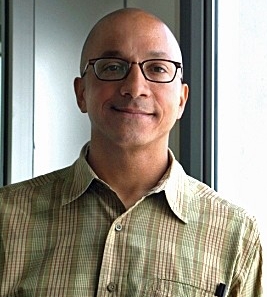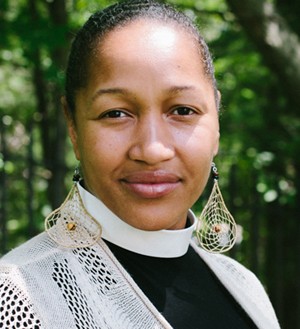The Schiller Institute for Integrated Science and Society will address the critical issue of environmental racism and the struggle for environmental justice nationally and globally at a highly anticipated Boston College Forum on Racial Justice in America event beginning at 4:30 p.m. on December 1. (Advance registration is required.)
Challenging Environmental Racism: From the Local to the Global, a virtual event conceived by the Schiller Institute’s Seidner Executive Director Laura J. Steinberg and planned by a committee of 18 faculty, staff, and students from throughout the University community, will feature renowned environmental sociologist David Pellow, the Dehlsen chair and professor of Environmental Studies, and director of the Global Environmental Justice Project at the University of California-Santa Barbara, and the Rev. Mariama White-Hammond, a prominent advocate for ecological and social justice and the founding pastor of the New Roots AME Church in Dorchester, Mass.

David N. Pellow

Rev. Mariama White-Hammond
Pellow will present an overview of the challenge of environmental racism and an exploration of some of the most important dimensions regarding environmental justice. Drawing on years of research as well as personal participation in the environmental justice movement, he will offer measures for promoting transformative change both here in the United States and abroad.
Hammond will address ecological justice, local struggles with environmental racism, and opportunities for change within the Greater Boston area based on a lifetime of community engagement.
The event, to be moderated by Steinberg, will be the first in a series of events on the topic to be scheduled throughout the coming year.

Laura J. Steinberg
“As the Boston College community rises to the challenge of confronting racial injustice in America, the Schiller Institute is taking on the battle against environmental racism,” said Steinberg. “As one of the links in the chain of structural racism, environmental racism reaches deep into the lifeblood of communities, causing an accumulation of environmental harms that threaten the health of residents, robbing them of open space, and eroding the value and cohesion of neighborhoods.
“The Schiller Institute, in fulfilling its mission to address complex social problems in a holistic and deeply engaged manner, is undertaking a concerted effort to explore the origins of environmental racism, examine its role as a manifestation of structural racism, understand and acknowledge the full extent of environmental racism's damage to communities of color, and, most importantly, to equip BC students, faculty, and allies with the insight, know-how, and opportunities to actively work to combat the scourge of environmental racism.”
Provost and Dean of Faculties David Quigley said that this Schiller Institute event reflects the expertise that Steinberg has brought to the University since being named executive director in the spring of 2020, and is in line with the vision of alumnus Phil Schiller ’82 and his wife Kim Gassett-Schiller, whose $25 million lead gift launched the Institute in 2017.
“Environmental scholarship will be a pillar of the Schiller Institute, and our commitment to linking scientific work with ethics and social contexts has led to this focus on the unequal experience of environmental degradation in urban communities around the nation,” said Quigley. “Laura Steinberg has brought together a wide range of colleagues from across campus to plan for this and future events on this important contemporary topic.”
The Schiller Institute is the centerpiece of the 150,000 square-foot science facility that is under construction on the University’s Middle Campus and will open in late 2021. The institute is committed to addressing critical issues in the areas of energy, health, and the environment.
Forum for Racial Justice in America inaugural director Vince Rougeau said that the event, which will close out the Forum’s fall schedule, will address a societal threat that too often victimizes people of color but is largely ignored by policy makers and political leaders.
“Study after study has shown that there are deep racial disparities when it comes to exposure to environmental hazards, both natural and man-made,” said Rougeau. “The concept of environmental racism reminds us that racial biases embedded in the structure of society are critical factors in determining who is most likely to suffer harm from environmental degradation, and addressing this harm is a critical part of the work that Boston College plans to do through the Forum on Racial Justice in America.”
Jack Dunn | University Communications | November 2020




